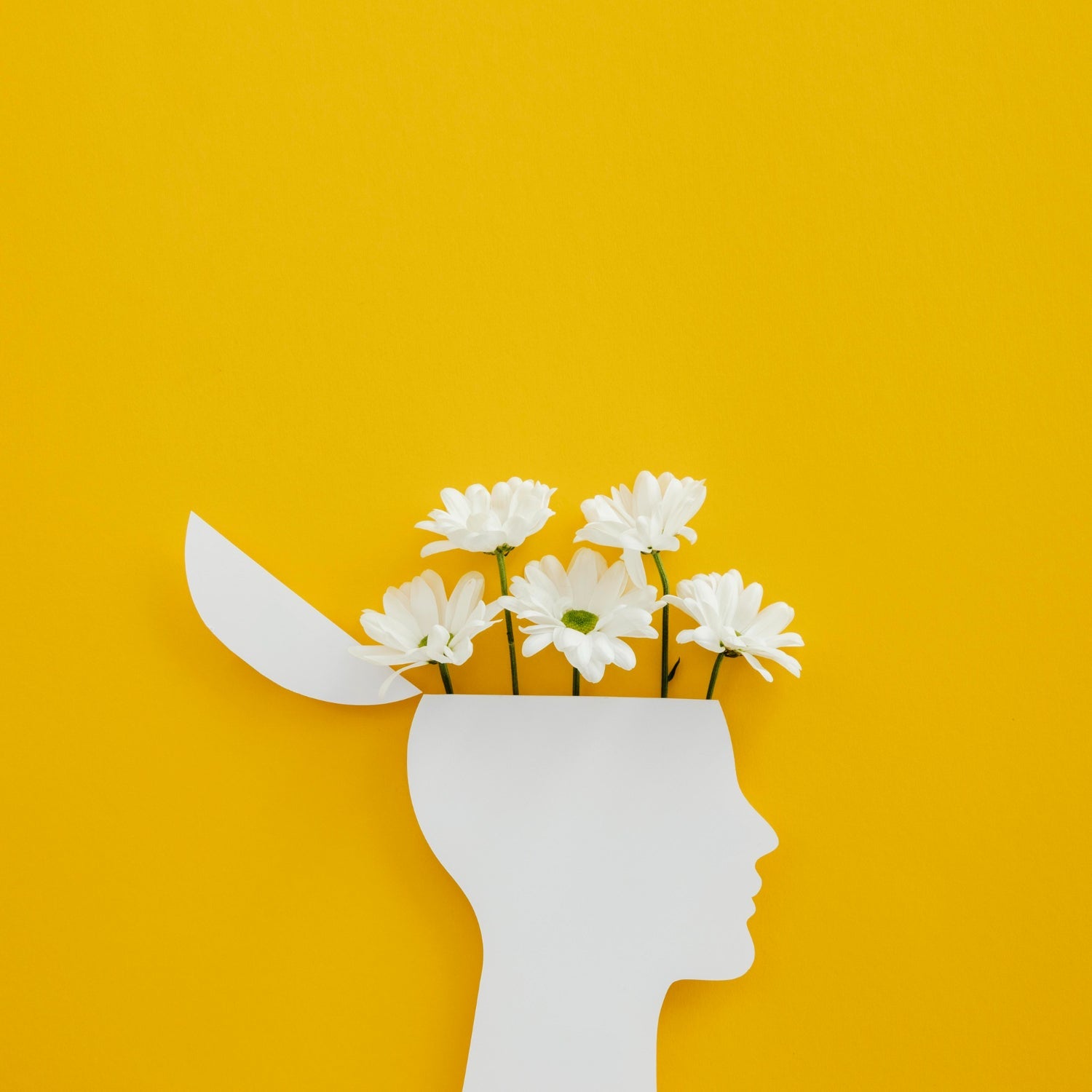10 Ayurvedic Tips to Boost Your Mental Health

Explore the profound connection between Ayurveda and mental health and discover ten Ayurvedic tips to boost your mental and physical health. Learn more.
In recent years, the world has witnessed a significant shift in acknowledging and prioritizing mental health. Mental well-being is gaining the attention it deserves as societies recognize the impact of psychological health on overall life satisfaction and productivity.
This article provides an overview of Ayurveda as a holistic system, establishes the intricate connection between Ayurveda and mental health, and aids in improving your mental well-being through Ayurvedic tips.
Growing Importance of Mental Health Awareness
Mental health is an integral aspect of overall well-being, influencing how individuals think, feel, and act. The global conversation around mental health has intensified as societies grapple with the challenges posed by stress, anxiety, depression, and other mental disorders.
In India, a staggering 60 to 70 million people suffer from common and severe mental disorders, making it imperative to prioritize mental health education and awareness.
The World Health Organization's alarming statistics reveal that India holds the unfortunate title of being the world's suicide capital, with over 2.6 lakh cases reported annually.

Recognizing the need for comprehensive approaches that address the root causes of mental health issues, individuals are turning to ancient wisdom, and Ayurveda stands out as a time-tested system offering a holistic perspective on health.
Overview of Ayurveda as a Holistic System
Ayurveda, often considered the "science of life," is an ancient holistic healing system that originated in India thousands of years ago. It emphasizes the balance of mind, body, and spirit to achieve overall health and well-being.
Ayurvedic psychology recognizes the interdependence of mental and physical health, acknowledging that imbalances in one aspect can affect the other. The system recognizes the role of diet, lifestyle, stress management, and spiritual practices in maintaining mental equilibrium.
Concept of Mind-Body Connection in Ayurveda and Mental Health
Ayurveda perceives the mind and body as interconnected entities, where the state of one profoundly influences the other. The mind, according to Ayurvedic psychology, is not confined to the brain but extends throughout the entire body, with thoughts and emotions intricately connected to our physical being.
The mind-body connection is emphasized through practices such as meditation, yoga, and pranayama (breath control), which aim to synchronize the mind and body.

The Role of Doshas in Ayurveda and Mental Health
Ayurveda categorizes individuals based on their unique constitution, known as doshas—Vata, Pitta, and Kapha. These doshas represent the fundamental energies that govern various physiological and psychological functions in the body.
Each dosha has unique characteristics, and an individual's Prakriti is determined by the dominance of one or more doshas. Each person typically has a dominant dosha or a combination of two doshas, influencing their physical and mental attributes.
- Vata Dosha: Vata is associated with movement and is responsible for bodily functions involving motion, such as breathing, circulation, and communication. An imbalance in Vata can lead to anxiety, restlessness, and difficulty focusing.
- Pitta Dosha: Pitta governs transformation and is linked to digestion, metabolism, and mental sharpness. Imbalances in Pitta may manifest as irritability, anger, and competitiveness.
- Kapha Dosha: Kapha is associated with stability and structure, influencing aspects like strength, immunity, and emotional well-being. An excess of Kapha may lead to lethargy, depression, and a sense of heaviness.
Understanding Mental Imbalances and Their Impact on Overall Health
Ayurveda recognizes that mental imbalances known as Manasika Vikaras can have profound effects on physical health and vice versa. Stress, anxiety, and negative emotions can disrupt the delicate balance of doshas, leading to various health issues.
Conversely, physical ailments can impact mental well-being, creating a reciprocal relationship between the mind and body.
Benefits of Ayurvedic Approaches to Mental Health
Ayurvedic approaches to mental health offer holistic and individualized treatments, incorporating natural remedies to address the root causes of imbalances. Some of these approaches have helped numerous patients seeking Ayurvedic counseling and treatment for mental illness.
Holistic and Individualized Treatments
One of the key strengths of Ayurveda in mental health is its personalized approach. Ayurvedic practitioners or psychiatrists consider the unique constitution, lifestyle, and mental state of each individual before designing a treatment plan. This personalized approach addresses the root causes of mental imbalances, promoting long-term well-being.
Natural Remedies for Mental Wellness
Ayurveda utilizes a variety of natural remedies derived from herbs, minerals, and other natural substances. These Ayurvedic medicines for mind relaxation aim to restore balance to the doshas and promote mental well-being without the side effects often associated with pharmaceutical interventions. Herbs like Brahmi, Ashwagandha, and Jatamansi are renowned for their calming and balancing effects on the mind.

Integrative Approach to Emotional and Psychological Balance
Ayurveda recognizes the interconnectedness of the mind, body, and spirit. Alongside herbal remedies, Ayurvedic treatments may include lifestyle modifications, dietary changes, yoga, and meditation. This integrative approach addresses the multifaceted nature of mental health, fostering emotional and psychological balance.
Ayurveda's effectiveness in promoting mental well-being is supported by both traditional wisdom and emerging research. Recent studies have explored the impact of Ayurvedic interventions on mental health outcomes, revealing promising results.
Ten Ayurvedic Tips for Enhancing Mental & Physical Health
From cultivating Sattva through self-care to balancing doshas and embracing mindful practices, here are ten Ayurvedic strategies that offer a comprehensive approach to nurturing both the mind and body.
- Cultivate Sattva and prioritize self-care: Ayurveda emphasizes the importance of cultivating Sattva – purity, harmony, and balance. Practicing self-care, engaging in activities that bring joy and tranquility, and nurturing positive relationships contribute to the development of Sattva, promoting mental well-being.
- Harmonize Agni and Doshas: Maintaining a balanced digestive fire (Agni) is crucial for mental health, as impaired digestion can lead to the accumulation of toxins (ama) that affect the mind. Ayurvedic practices such as mindful eating, proper food combining, and gentle detoxification help balance Agni and the doshas.
- Have a balanced diet: Ayurveda places significant importance on diet for mental health. A nourishing diet, tailored to an individual's dosha constitution, supports overall well-being. Including fresh, seasonal, and whole foods while minimizing processed and artificial substances contributes to mental balance.
- Prioritize quality sleep: Quality sleep is essential for mental health, according to Ayurveda. Establishing a regular sleep routine, creating a calming bedtime environment, and adopting relaxation techniques contribute to restful and rejuvenating sleep.
- Foster mental balance with a holistic lifestyle: Balancing work, rest, and play is fundamental to mental well-being. Ayurveda recommends a balanced daily routine that aligns with the natural rhythms of the day, fostering a sense of stability and harmony.

6.Stay connected while distanced: Ayurveda recognizes the importance of social connections for mental health. While physical distancing may be necessary, maintaining virtual connections, engaging in meaningful conversations, and fostering a sense of community contribute to emotional well-being.
7.Avoid sensory overstimulation: Excessive stimulation of the senses can contribute to mental imbalances. Moderation in sensory experiences, including screen time, loud noises, and intense visual stimuli, is recommended by Ayurvedic psychiatrists to maintain a calm and focused mind.
8.Boost immunity and Ojas: Ayurveda places great importance on building and preserving Ojas, the essence of vitality and immunity. Nutrient-dense foods, regular exercise, and stress management practices contribute to the cultivation of Ojas, supporting mental and physical resilience.
9.Embrace self-massage: Abhyanga, or self-massage with warm oil, is a traditional Ayurvedic practice that promotes relaxation and balance. Regular self-massage nourishes the skin, calms the nervous system, and supports overall mental well-being.
10.Mindfulness for stress management: Mindfulness and meditation are integral to Ayurvedic approaches for managing stress and promoting mental clarity. Meditation is considered the best Ayurvedic medicine for mind relaxation. Practices such as deep breathing, meditation, and mindful awareness contribute to the cultivation of a calm and centered mind.
Ayurvedic Practitioners Specializing in Mental Health at Vedi Wellness Center
Vedi Wellness Center stands as a beacon of Ayurvedic expertise, with a team of experienced practitioners specializing in mental health and providing the best Ayurvedic counseling and treatment for mental illness.
The practitioners at Vedi Wellness Center boast extensive qualifications and specialized training in Ayurvedic counseling. Their expertise in Ayurvedic diagnostics, herbal medicine, and lifestyle counseling positions them as leaders in the field, providing compassionate and effective care for individuals seeking mental wellness.
Patient Testimonials and Success Stories in Mental Health Treatment
Patient testimonials at Vedi Wellness Center attest to the success of Ayurvedic approaches in promoting mental well-being.
Vedi Herbals introduces game-changing solutions like CANNAPAIN, CANNAPAIN+, and CANNAPAIN® OIL, offering an ideal cannabis-based formulation to address mental health issues, including anxiety.
For Cannapain:

For Cannapain+:

For Cannapain Oil:

The Last Word
In conclusion, the growing importance of mental health awareness has paved the way for the resurgence of holistic approaches such as Ayurveda.
The ancient wisdom of Ayurveda recognizes the intricate connection between the mind, body, and spirit, offering personalized and natural solutions to promote mental well-being.
FAQs
Which dosha causes mental problems?
Mental problems in Ayurveda are often associated with an imbalance in the Vata dosha, characterized by anxiety, restlessness, and erratic thoughts.
How can I be mentally strong in Ayurveda?
To be mentally strong in Ayurveda, focus on practices like cultivating Sattva, maintaining balanced doshas, adopting a nourishing diet, and engaging in mindfulness techniques for stress management.
Which branch of Ayurveda deals with mental disorders?
Ayurveda addresses mental disorders through the branch known as "Bhuta Vidya," which deals specifically with the diagnosis and treatment of psychological and psychiatric conditions.
What are the 4 types of mental health?
Ayurveda recognizes four aspects of mental health: "Prasada," a serene and clear mind; "Sattvic Buddhi," balanced intellect; "Indriya Atura," controlled senses; and "Atma," a sense of inner fulfillment and purpose.







